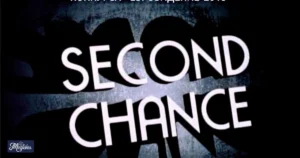Life is often compared to a journey—a series of experiences that shape our paths, challenge our resolve, and lead us to growth and understanding. Metaphors for journeys are powerful tools that writers and speakers use to describe the twists and turns of life, the challenges we face, and the destinations we seek.
These metaphors help convey the emotional, spiritual, and intellectual aspects of our life’s travels, making complex experiences relatable and vivid. In this article, we will explore a variety of journey metaphors that can be used to describe life’s adventures and travels.
1. Life is a winding road
Meaning: Life is full of unexpected turns and challenges.
Example Sentence: “Navigating my career has been like driving on a winding road, full of sharp turns and unforeseen obstacles.”
Explanation: This metaphor emphasizes the unpredictability and complexity of life, where the path is rarely straight and simple. The “winding road” represents the unexpected challenges and changes that require adaptability and perseverance.
2. A journey through uncharted waters
Meaning: Exploring unknown or unfamiliar situations.
Example Sentence: “Starting a new business felt like a journey through uncharted waters, with no clear map to guide us.”
Explanation: This metaphor conveys the idea of venturing into new and uncertain territories. The “uncharted waters” symbolize unfamiliar situations where the outcome is unknown, requiring courage and exploration.
3. Crossing bridges
Meaning: Overcoming obstacles or moving past difficulties.
Example Sentence: “In our relationship, we’ve had to cross many bridges to get to where we are today.”
Explanation: “Crossing bridges” represents overcoming challenges or moving beyond difficult situations. It implies a necessary action to progress and reach a new stage in life or a relationship.
4. Climbing a mountain
Meaning: Undertaking a difficult and ambitious challenge.
Example Sentence: “Achieving my degree was like climbing a mountain, demanding endurance and determination.”
Explanation: This metaphor compares life’s challenges to climbing a mountain, emphasizing the effort, perseverance, and determination required to reach a significant goal or overcome a difficult obstacle.
5. At a crossroads
Meaning: Facing a crucial decision point in life.
Example Sentence: “After graduation, I found myself at a crossroads, unsure of which career path to choose.”
Explanation: “At a crossroads” metaphorically describes a moment in life when an important decision must be made, with multiple potential directions or outcomes.
6. Walking a tightrope

Meaning: Balancing between two opposing forces or situations.
Example Sentence: “As a leader, I often feel like I’m walking a tightrope between being approachable and maintaining authority.”
Explanation: This metaphor highlights the delicate balance required in certain situations, where any misstep could lead to failure or undesirable consequences.
7. Taking the scenic route
Meaning: Choosing a longer or more enjoyable path, often for the experience.
Example Sentence: “In my career, I’ve sometimes chosen to take the scenic route, prioritizing personal growth over quick success.”
Explanation: “Taking the scenic route” implies choosing a path that may take longer but offers more experiences, lessons, or enjoyment along the way. It suggests valuing the journey itself as much as the destination.
8. A journey of a thousand miles begins with a single step
Meaning: Every long or difficult journey starts with a small, initial action.
Example Sentence: “Embarking on a new career felt daunting, but I reminded myself that a journey of a thousand miles begins with a single step.”
Explanation: This metaphor emphasizes the importance of starting, no matter how daunting the journey ahead might seem. It encourages taking that first step towards a goal or challenge.
9. Lost in the wilderness
Meaning: Feeling confused, directionless, or overwhelmed.
Example Sentence: “After losing my job, I felt lost in the wilderness, unsure of what to do next.”
Explanation: This metaphor describes a state of confusion or lack of direction, comparing it to being physically lost in a wild, unfamiliar place.
10. Reaching the end of the road
Meaning: Coming to the conclusion of a journey or phase in life.
Example Sentence: “After years of hard work, I’m finally reaching the end of the road with this project.”
Explanation: “Reaching the end of the road” signifies the completion of a journey, task, or phase in life, often with a sense of accomplishment or closure.
11. Navigating rough seas
Meaning: Dealing with difficult or turbulent times.
Example Sentence: “Our team has been navigating rough seas with the recent economic downturn, but we’re staying strong.”
Explanation: This metaphor uses the imagery of sailing through turbulent waters to describe challenging or difficult times that require resilience and skill to overcome.
12. Following a map
Meaning: Using a plan or guide to achieve a goal.
Example Sentence: “We’ve been following a map to success, carefully planning each step of our business strategy.”
Explanation: This metaphor suggests that there is a clear plan or strategy being followed, much like using a map to reach a destination.
13. Going off the beaten path
Meaning: Choosing an unconventional or less common route.
Example Sentence: “I decided to go off the beaten path in my career, opting for a creative field rather than a traditional job.”
Explanation: “Going off the beaten path” implies making choices that are unconventional or less common, often leading to unique experiences or outcomes.
14. At a standstill
Meaning: Experiencing a period of no progress or movement.
Example Sentence: “After months of effort, the project is now at a standstill due to funding issues.”
Explanation: This metaphor describes a situation where progress has stopped, likening it to a journey that has come to a halt.
15. Paving the way
Meaning: Making progress that allows others to follow or benefit.
Example Sentence: “By introducing these new policies, she is paving the way for future leaders in the organization.”
Explanation: “Paving the way” metaphorically describes the act of making progress or taking actions that make it easier for others to follow or succeed.
16. A Clouded Mirror
Meaning: An unclear reflection of reality or understanding due to confusion.
Example Sentence 1: “Trying to figure out the new project guidelines felt like looking into a clouded mirror, where the details were obscured and confusing.”
Example Sentence 2: “Her explanation was a clouded mirror, making it difficult to see the true scope of the problem.”
Explanation: This metaphor compares confusion to a mirror covered in fog, representing how clarity is obscured and understanding is hindered.
17. A Shattered Compass
Meaning: Having no clear direction or guidance due to conflicting information.
Example Sentence 1: “The conflicting instructions left me feeling like I was using a shattered compass, unsure of which way to proceed.”
Example Sentence 2: “His thoughts were a shattered compass, pointing in different directions and making decision-making nearly impossible.”
Explanation: This metaphor likens confusion to a broken compass, illustrating the lack of direction and guidance in understanding a situation.
18. A Jigsaw Puzzle in the Dark
Meaning: Attempting to solve a problem or understand a situation with limited visibility or understanding.
Example Sentence 1: “Navigating the new software felt like putting together a jigsaw puzzle in the dark, where each piece was hard to find and fit.”
Example Sentence 2: “Her analysis was like solving a jigsaw puzzle in the dark, with critical pieces missing that made it impossible to see the complete picture.”
Explanation: This metaphor compares confusion to assembling a puzzle without light, emphasizing the difficulty in seeing or understanding the whole picture.
19. A Tangled Map
Meaning: Having a confusing or convoluted set of instructions or information.
Example Sentence 1: “The project plan was like a tangled map, with so many routes and options that it was hard to determine the right path.”
Example Sentence 2: “His explanation was a tangled map, full of twists and turns that made it difficult to follow and understand.”
Explanation: This metaphor likens confusion to a complicated and tangled map, highlighting the difficulty in navigating and finding clarity.
20. A Chaotic Symphony
Meaning: An overwhelming and disorganized combination of ideas or information.
Example Sentence 1: “The meeting felt like a chaotic symphony, with everyone talking over each other and no clear harmony to guide the discussion.”
Example Sentence 2: “Her mind was a chaotic symphony, with thoughts clashing and creating a confusing noise that was hard to make sense of.”
Explanation: This metaphor compares confusion to a disorganized and chaotic symphony, emphasizing the lack of order and clarity in thoughts or information.
Metaphors for Yourself: Expressing Personal Identity Creatively
21. A Broken Bridge
Meaning: Feeling disconnected or unable to cross from one understanding or situation to another due to confusion.
Example Sentence 1: “Trying to understand the new policy was like walking on a broken bridge, with gaps that made it difficult to reach a clear conclusion.”
Example Sentence 2: “His reasoning was a broken bridge, leaving me stranded between confusion and clarity without a way to cross.”
Explanation: This metaphor compares confusion to a damaged bridge, representing the difficulty in transitioning or connecting different pieces of information.
22. A Fuzzy Radar
Meaning: Having difficulty detecting or understanding something due to unclear or vague signals.
Example Sentence 1: “The project’s objectives were like a fuzzy radar, with unclear signals making it hard to pinpoint the goals.”
Example Sentence 2: “Her instructions were a fuzzy radar, sending mixed signals that left me unsure of the correct actions to take.”
Explanation: This metaphor likens confusion to a radar with unclear signals, emphasizing the difficulty in detecting or understanding information.
23. A Confetti Storm
Meaning: An overwhelming and scattered array of information or emotions.
Example Sentence 1: “The feedback from the team was like a confetti storm, with so many different opinions scattered everywhere that it was hard to focus on one.”
Example Sentence 2: “Her thoughts were a confetti storm, each piece of information flying around chaotically and making it difficult to grasp any clarity.”
Explanation: This metaphor compares confusion to a storm of confetti, illustrating how scattered and overwhelming information can lead to a lack of focus.
24. A Vortex of Doubts
Meaning: Being pulled into a swirling, overwhelming set of uncertainties and concerns.
Example Sentence 1: “The sudden changes in the project felt like being caught in a vortex of doubts, where every new piece of information added to the confusion.”
Example Sentence 2: “His indecision was a vortex of doubts, pulling him deeper into uncertainty and making it hard to find a clear path forward.”
Explanation: This metaphor likens confusion to a vortex, representing the powerful and disorienting force of swirling doubts and uncertainties.
25. An Unfinished Manuscript
Meaning: A situation or thought process that is incomplete or lacking key elements needed for understanding.
Example Sentence 1: “Trying to follow the plan was like reading an unfinished manuscript, with missing chapters that left me confused about the overall story.”
Example Sentence 2: “Her explanation felt like an unfinished manuscript, leaving out crucial details that made it hard to grasp the full meaning.”
Explanation: This metaphor compares confusion to an incomplete manuscript, highlighting the missing elements that prevent a complete understanding.
26. A Hazy Blueprint
Meaning: An unclear or vague plan that is difficult to follow or implement.
Example Sentence 1: “The project guidelines were like a hazy blueprint, with unclear details making it hard to see how to execute the plan.”
Example Sentence 2: “His instructions were a hazy blueprint, lacking the precision needed to understand the exact steps required.”
Explanation: This metaphor likens confusion to a blurred or incomplete blueprint, emphasizing the difficulty in following or understanding a plan.
27. A Muddled Forecast
Meaning: Predictions or expectations that are unclear and confusing.
Example Sentence 1: “The future of the project seemed like a muddled forecast, with conflicting signals making it hard to anticipate what would happen next.”
Example Sentence 2: “Her predictions were a muddled forecast, filled with uncertainty and confusion that made it difficult to prepare for the outcome.”
Explanation: This metaphor compares confusion to an unclear weather forecast, highlighting the difficulty in making accurate predictions or understanding future events.
28. A Dissonant Chord
Meaning: A combination of ideas or elements that do not harmonize, leading to confusion.
Example Sentence 1: “The team’s conflicting strategies created a dissonant chord, making it challenging to harmonize efforts and move forward effectively.”
Example Sentence 2: “Her thoughts were a dissonant chord, with conflicting ideas clashing and creating a sense of confusion and discord.”
Explanation: This metaphor likens confusion to a musical dissonance, representing the lack of harmony and the resulting difficulty in understanding or aligning different elements.
29. A Riddle Wrapped in Mystery
Meaning: A situation or problem that is both puzzling and obscure, making it hard to decipher.
Example Sentence 1: “The new policy changes felt like a riddle wrapped in mystery, with so many layers of complexity that understanding was nearly impossible.”
Example Sentence 2: “His explanation was a riddle wrapped in mystery, filled with enigmatic details that only added to the overall confusion.”
Explanation: This metaphor combines the concepts of riddles and mystery to illustrate how confusing and obscure a situation can be.
30. A Swirling Dervish
Meaning: Being caught in a chaotic and rapidly changing situation that is hard to make sense of.
Example Sentence 1: “The constant changes in the project felt like being a swirling dervish, spinning in confusion and unable to find stability.”
Example Sentence 2: “Her thoughts were a swirling dervish, with ideas whirling around so quickly that it was hard to focus on any one thing.”
Explanation: This metaphor likens confusion to the chaotic spinning of a dervish, emphasizing the sense of being caught in a tumultuous and disorienting situation.
31. An Enigma Machine
Meaning: A complex and puzzling situation that requires significant effort to understand.
Example Sentence 1: “The new software was like an enigma machine, with its complex interface and settings making it hard to decode how it worked.”
Example Sentence 2: “Her cryptic messages were an enigma machine, requiring careful analysis to unravel the underlying meaning and intent.”
Explanation: This metaphor compares confusion to the complexity of an enigma machine, representing the effort needed to decipher a complicated or obscure situation.
32. A Tornado of Ideas
Meaning: A whirlwind of conflicting or overwhelming thoughts and ideas that makes it hard to focus.
Example Sentence 1: “The brainstorming session turned into a tornado of ideas, with so many suggestions swirling around that it was hard to pinpoint a clear direction.”
Example Sentence 2: “His mind was a tornado of ideas, each thought spinning around rapidly and creating a sense of confusion and disarray.”
Explanation: This metaphor likens confusion to a tornado, illustrating how overwhelming and chaotic a flood of ideas can be.
33. A Distorted Reflection

Meaning: An unclear or skewed understanding of a situation, making it difficult to see the truth.
Example Sentence 1: “The media coverage presented a distorted reflection of the event, making it hard to discern the actual facts.”
Example Sentence 2: “Her recollection of the meeting was a distorted reflection, with the details muddled and unclear.”
Explanation: This metaphor compares confusion to a distorted mirror image, emphasizing how the true nature of a situation can become unclear and confusing.
34. An Overgrown Jungle
Meaning: A situation or problem that has become overly complex and difficult to navigate due to excessive detail.
Example Sentence 1: “The project’s requirements were like an overgrown jungle, with so many details that it was challenging to see the main objectives.”
Example Sentence 2: “Her explanations were an overgrown jungle, with too many convoluted points making it hard to understand the core issue.”
Explanation: This metaphor compares confusion to a dense and tangled jungle, illustrating how excessive complexity can obscure understanding.
35. A Blurry Map
Meaning: A confusing and unclear set of directions or information.
Example Sentence 1: “The new process was like using a blurry map, with details that were hard to read and navigate.”
Example Sentence 2: “His instructions were a blurry map, making it difficult to find the right path and understand the necessary steps.”
Explanation: This metaphor likens confusion to a map that is difficult to read, highlighting the challenges of navigating through unclear or vague information.
Answers to Key Questions
1. How can journey metaphors enhance my writing?
Journey metaphors can enhance your writing by providing vivid and relatable imagery that helps readers connect with the experiences and emotions being described. They can make abstract concepts more tangible and engaging.
2. Why are journey metaphors effective in describing life?
Journey metaphors are effective because they mirror the process of growth, change, and discovery that characterizes life. They allow people to relate their personal experiences to familiar images of travel and exploration.
3. Can journey metaphors be used in different genres of writing?
Yes, journey metaphors can be used in a variety of genres, including fiction, non-fiction, poetry, and motivational writing. They are versatile tools for conveying themes of progress, challenge, and transformation.
4. What are some common themes in journey metaphors?
Common themes in journey metaphors include progress, exploration, challenge, decision-making, and growth. These themes help convey different aspects of personal or collective experiences in a relatable way.
5. How do I create my own journey metaphors?
To create your own journey metaphors, think about the different aspects of travel—such as paths, destinations, obstacles, and companions—and how these can symbolize aspects of life. Consider how the characteristics of a journey can reflect the experiences or emotions you want to describe.
Conclusion
Journey metaphors offer a rich and dynamic way to describe life’s adventures and travels. Whether you’re navigating uncharted waters, climbing a mountain, or simply taking the scenic route, these metaphors can help you express the complexity, beauty, and challenge of life’s path.
By using journey metaphors, you can bring depth and meaning to your writing, making your descriptions of life’s adventures more relatable and impactful for your readers

Hi, I’m Lauren Reynolds: I bring creativity to English lessons, mixing fun with learning. My goal is to inspire students to explore and enjoy the language.










